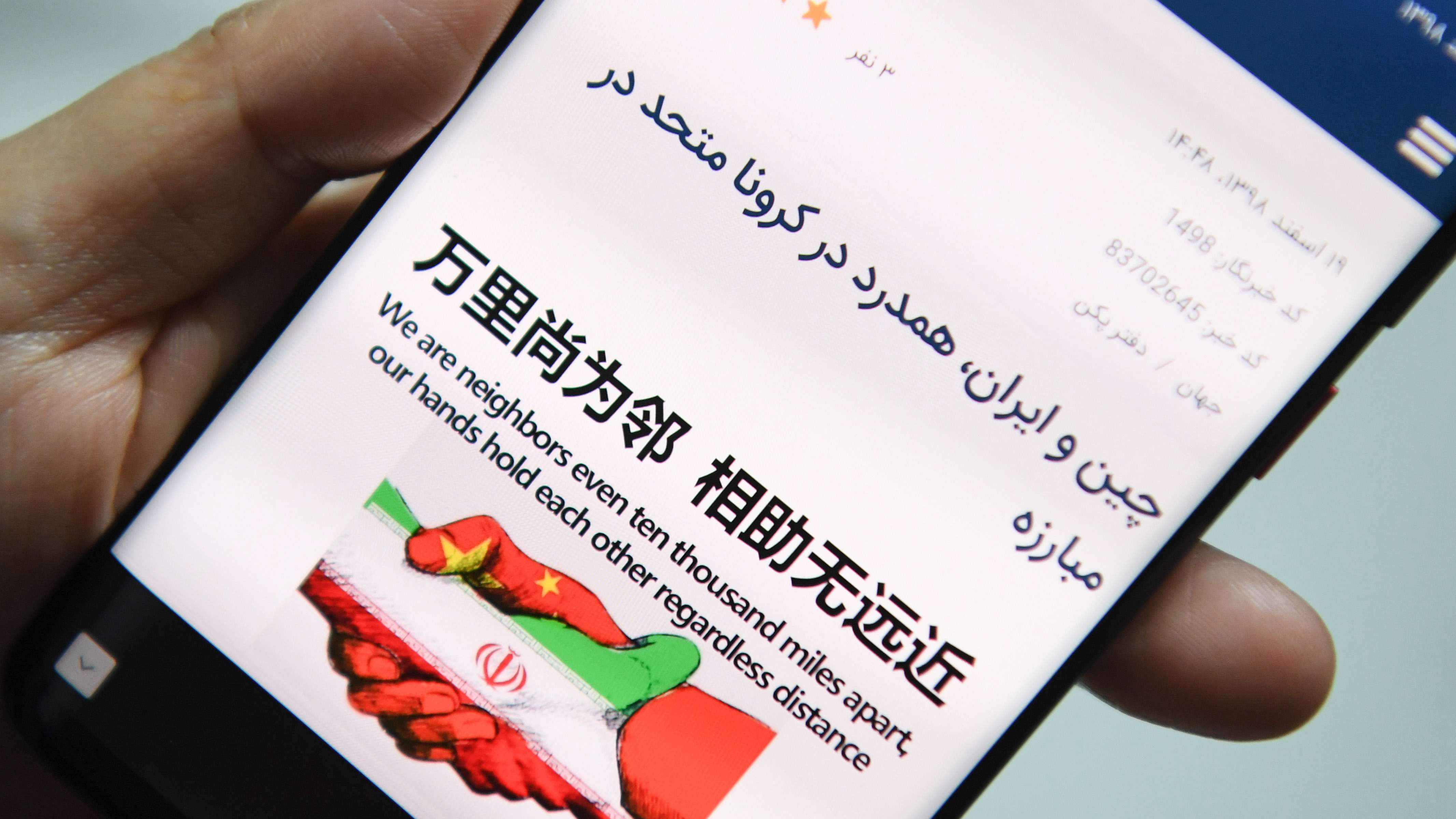
Iran's top nuclear negotiator Abbas Araqchi (C, R) and Secretary General of the European External Action Service Helga Schmid (C, L) attend a meeting of the Joint Comprehensive Plan of Action Joint Commission in Vienna, Austria, June 28, 2019. /Reuters
Iran's top nuclear negotiator Abbas Araqchi (C, R) and Secretary General of the European External Action Service Helga Schmid (C, L) attend a meeting of the Joint Comprehensive Plan of Action Joint Commission in Vienna, Austria, June 28, 2019. /Reuters
Editor's note: Wamika Kapur is an Indian PhD scholar of international relations at South Korea's Yonsei University. The article reflects the author's opinions and not necessarily the views of CGTN.
It has been reported that China and Iran are negotiating a 25-year cooperation agreement named the Sino-Iranian Comprehensive Strategic Partnership. The partnership is thought to be a continuation of the 600 billion U.S. dollar trade deal agreement between the two countries in 2016.
The main difference is the crucial military element added to the original agreement to invest in energy sectors and free trade zones. The deal is a product of the unraveling of the Iran nuclear deal and comes amid a diplomatic clash with the U.S. trying to re-impose sanctions on Iran and the European Union, Britain, France and Germany opposing them. It has been considered controversial for being disproportionately advantageous to China, which is a simpleminded view and overlooks many important aspects of the relationship.
The U.S. has put Iran in geopolitical isolation, which has not left it with many trading partners. The Donald Trump administration's Iran policy has been a metaphor for destruction. Aside from banning Iranians from entering the U.S., pulling out of the Joint Comprehensive Plan of Action and instating unilateral sanctions, accusing Iran of new missile activity and downing an American drone, the U.S. has also launched cyberattacks and assassinated Qasem Soleimani, head of the Iranian Revolutionary Guards' Quds Force.
In response, Iran declared all members of the U.S. armed forces and the Pentagon terrorists and any cooperation with them a terrorist act. The sanctions, assassination and COVID-19 have collectively quashed any possibility of a U.S.-Iran reunion.
However, the Western banking system is completely dominated by U.S. influence and threatens anyone who does business with Iran. Amid U.S. sanctions, the European Union, the UK, France and Germany have been trying to set up alternate means of funding Iran, but they haven't been successful. Iran's failing economy needed a bailout, and considering China is Iran's main trading partner, the agreement is not surprising in the least. Further, it will be conducted in Chinese yuan, bringing it out of the purview of Western banks and unilateral sanctions.
It has been argued that the deal may never materialize because the U.S. will always trump Iran for China. The comparison is flawed, as the scale of China's trade with both countries is different. Iran is China's energy gateway into the Gulf and Europe. Meanwhile, America has consistently been announcing its impending decoupling with China.
Also, logic would dictate that Iran, despite being a risky market, is currently isolated and hence would be a more reliable partner to China. Further, both countries have maintained economic and political relations for the past 10 years, unlike Iran's relationship with the West.
And the concerns regarding it being an asymmetric relationship toward Iran do not take into consideration the geopolitical risk of investing in Iran. China's Huawei technology was accused of sending prohibited American computer equipment to Iran's mobile operator Skycom.

The official account of the Iranian Embassy in China on the Chinese social media platform Weibo, March 21, 2020. /Xinhua
The official account of the Iranian Embassy in China on the Chinese social media platform Weibo, March 21, 2020. /Xinhua
A criminal case for bank fraud and wire fraud was brought against Huawei and its chief financial officer, Meng Wanzhou, the daughter of Huawei's founder. She was arrested in Canada and is still fighting extradition to the U.S. since her arrest. The U.S. treasury department has sanctioned over six Chinese entities, including their top executives, for trading oil with Iran, including affiliates of Cosco Shipping and Chinese owned Zhuhai Zhenrong.
Iran is a small market with an economy that has been suffering from sanctions for years. The country is isolated, tagged "world's largest state sponsor of terrorism" by America and surrounded by Sunni dominated American allies in the region, which tends to scare away foreign investments. Aligning with China and being inducted into the Belt and Road Initiative (BRI) and the Shanghai Cooperation Organization will increase Iran's economic opportunities and credibility.
The main reason for the controversy is that the deal paints China in a defiant role against the U.S. However, the deal is primarily pragmatic. Iran is one of the largest producers of oil, and China imports 75 percent of its oil, allowing it to diversify vendors.
China was the largest buyer of Iranian crude oil despite sanctions from the U.S. Apart from their primary commercial purposes, the ports of Hambantota in Sri Lanka, Gwadar in Pakistan combined with ports at Jask and Strait of Hormuz, in the Persian Gulf and the Caspian Sea, would also create refueling stations for the Chinese Navy. Chinese investments will help Iran develop its telecommunication, banking and railway sectors.
The deal offers Iran a chance at development with mutual respect on its own terms without compromising on its national interests. More importantly, it gives Iran the opportunity not to feel helpless against the onslaught of disapproval from the West. China gets to offer countries a way out from American military adventurism and use of force contrary to international laws. China can play a constructive role in safeguarding the peace and security of the Gulf region and promote its BRI.
(If you want to contribute and have specific expertise, please contact us at opinions@cgtn.com.)